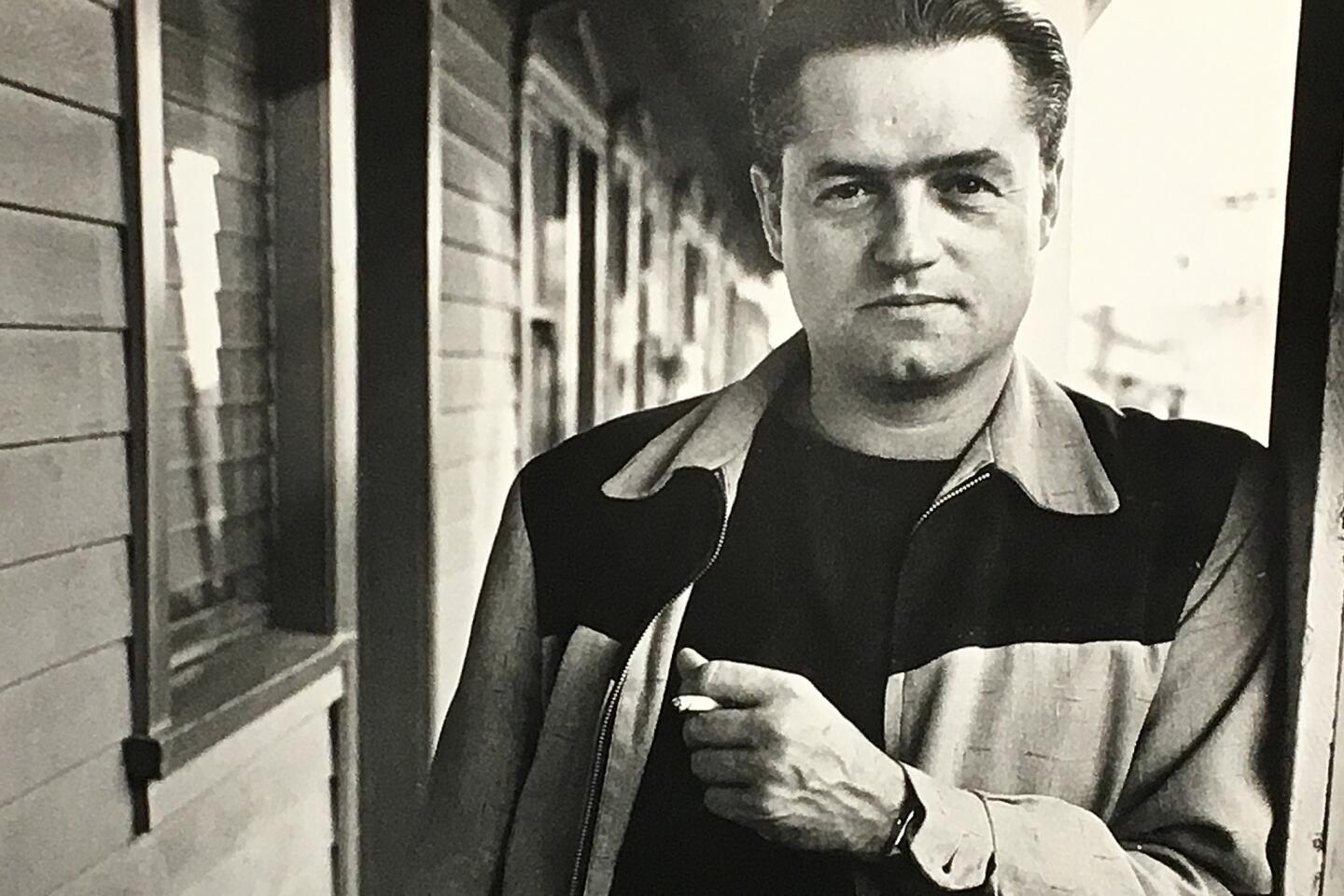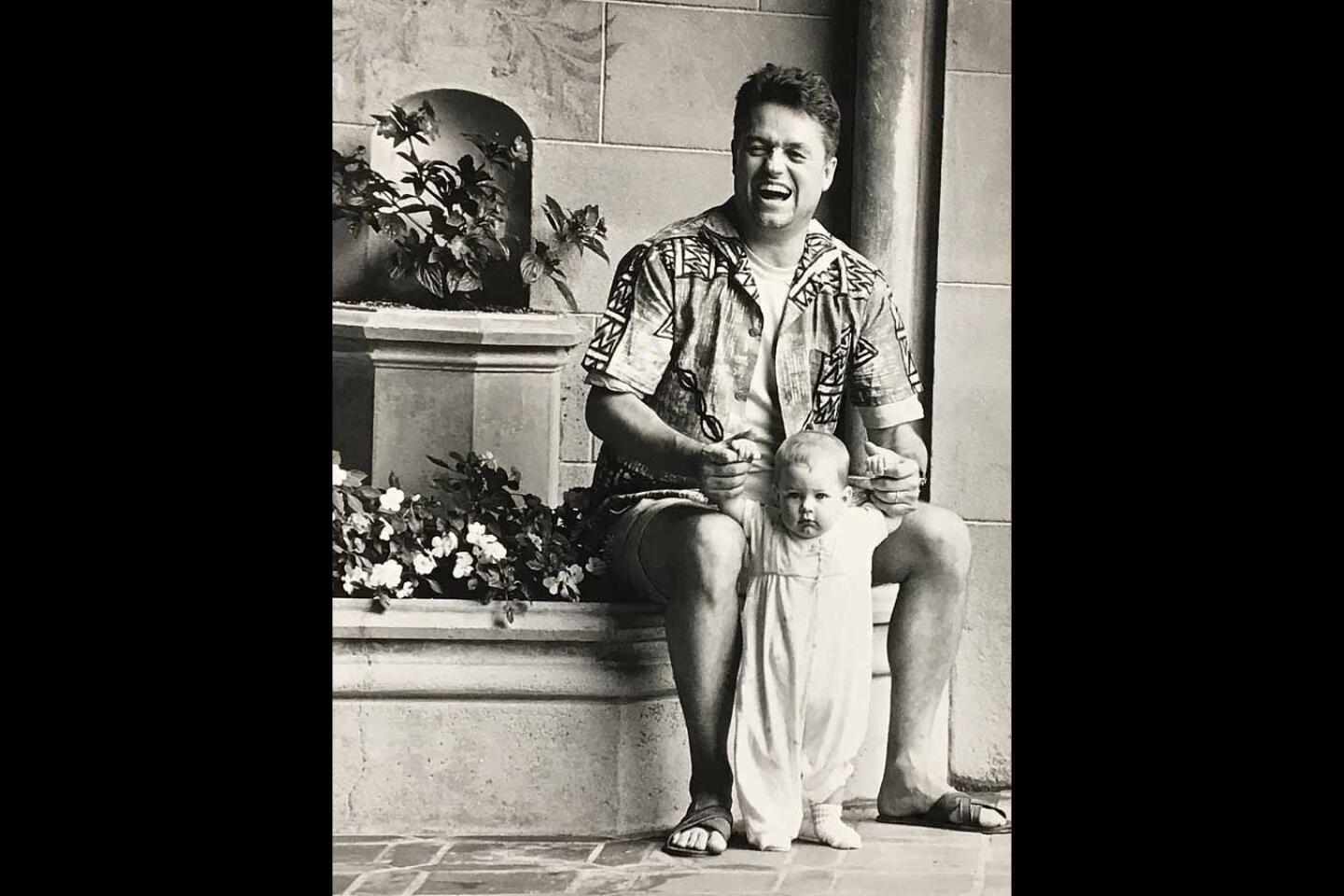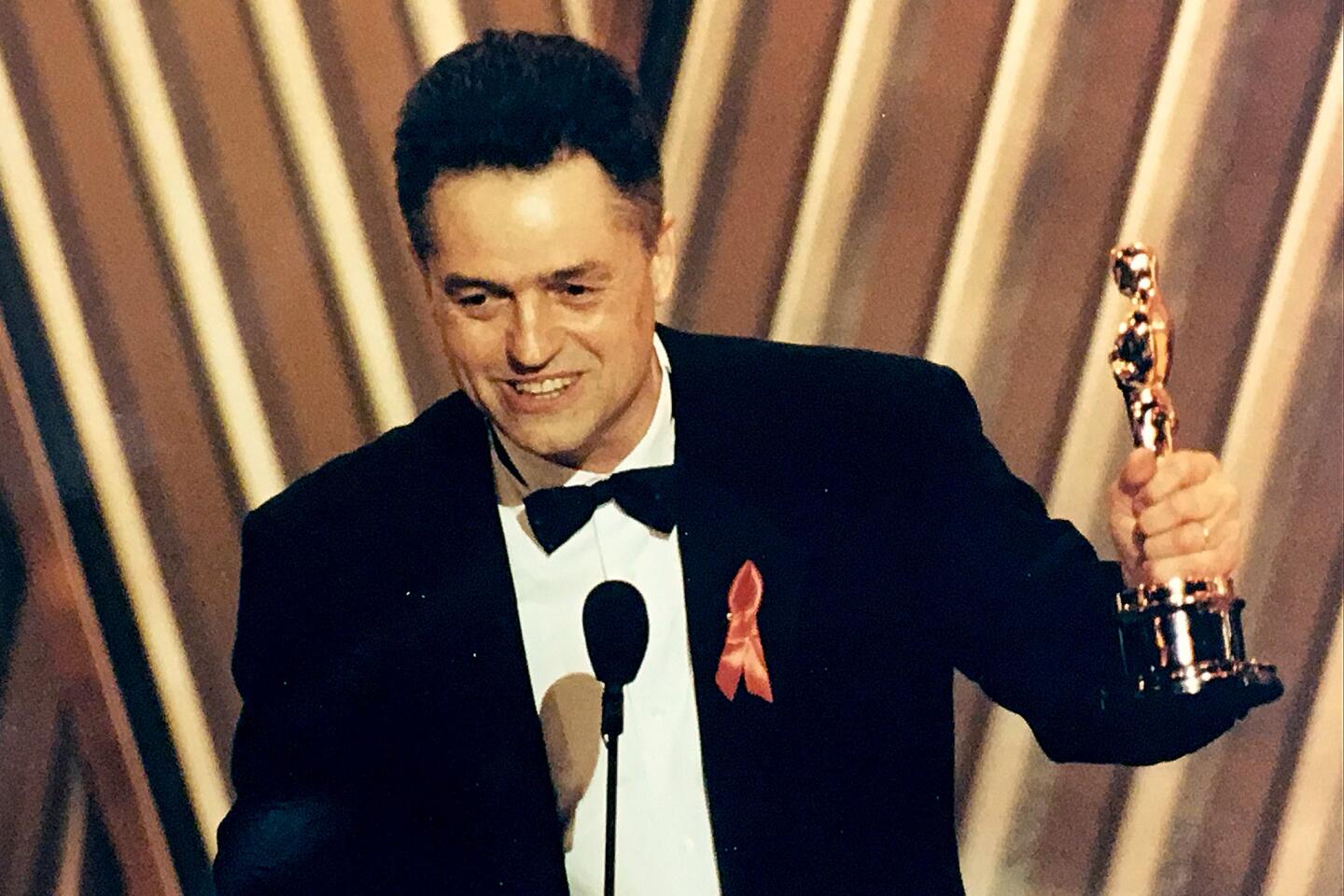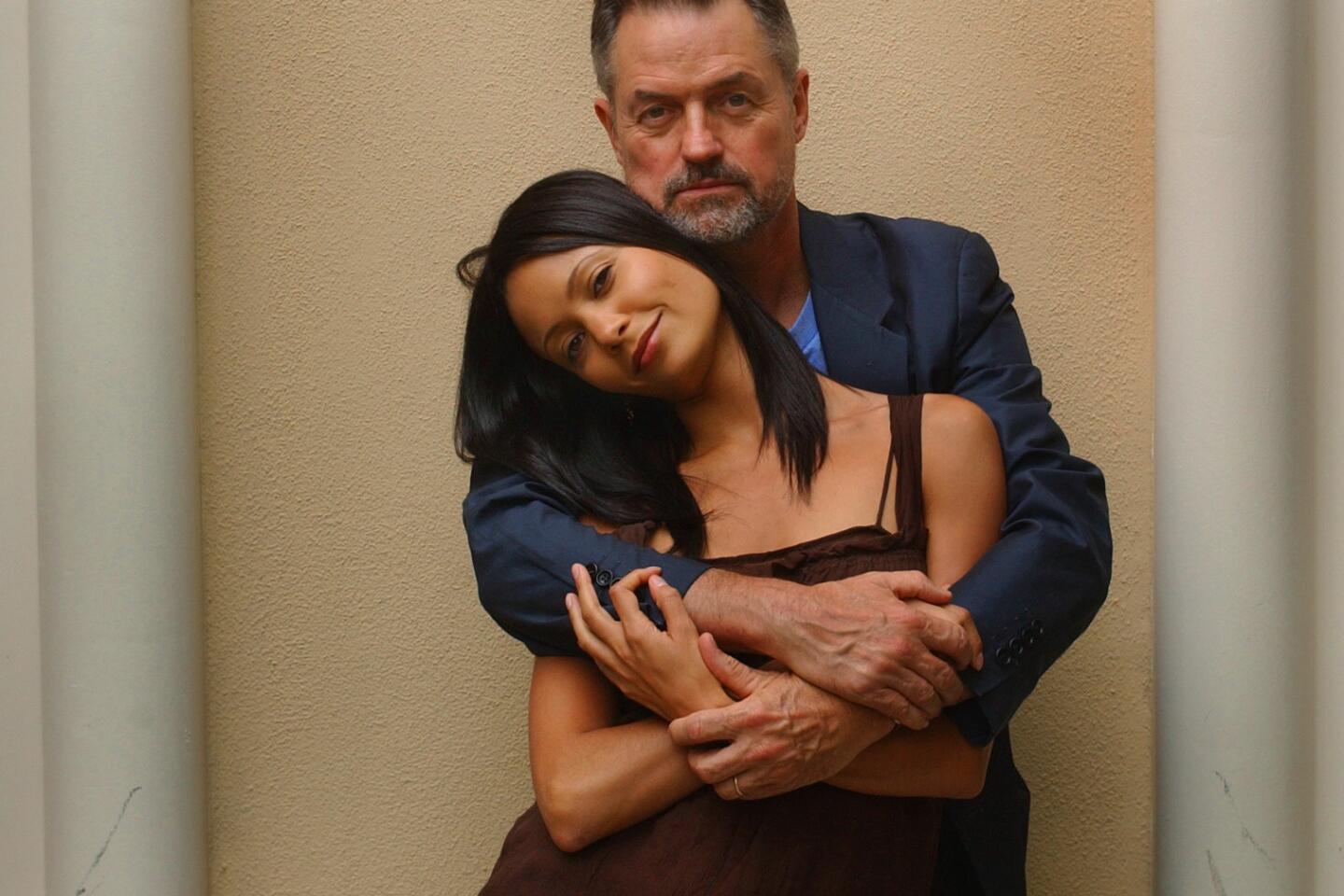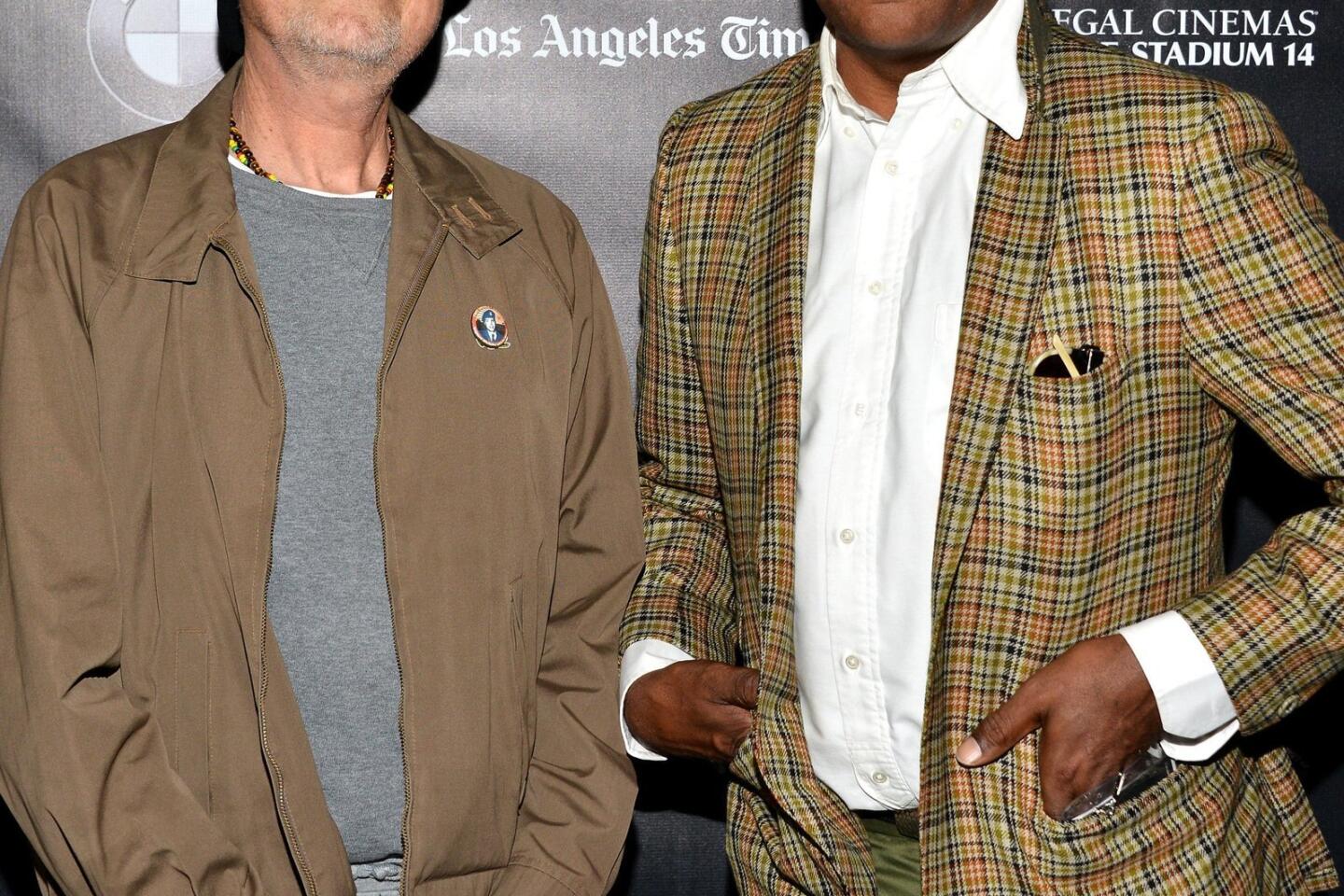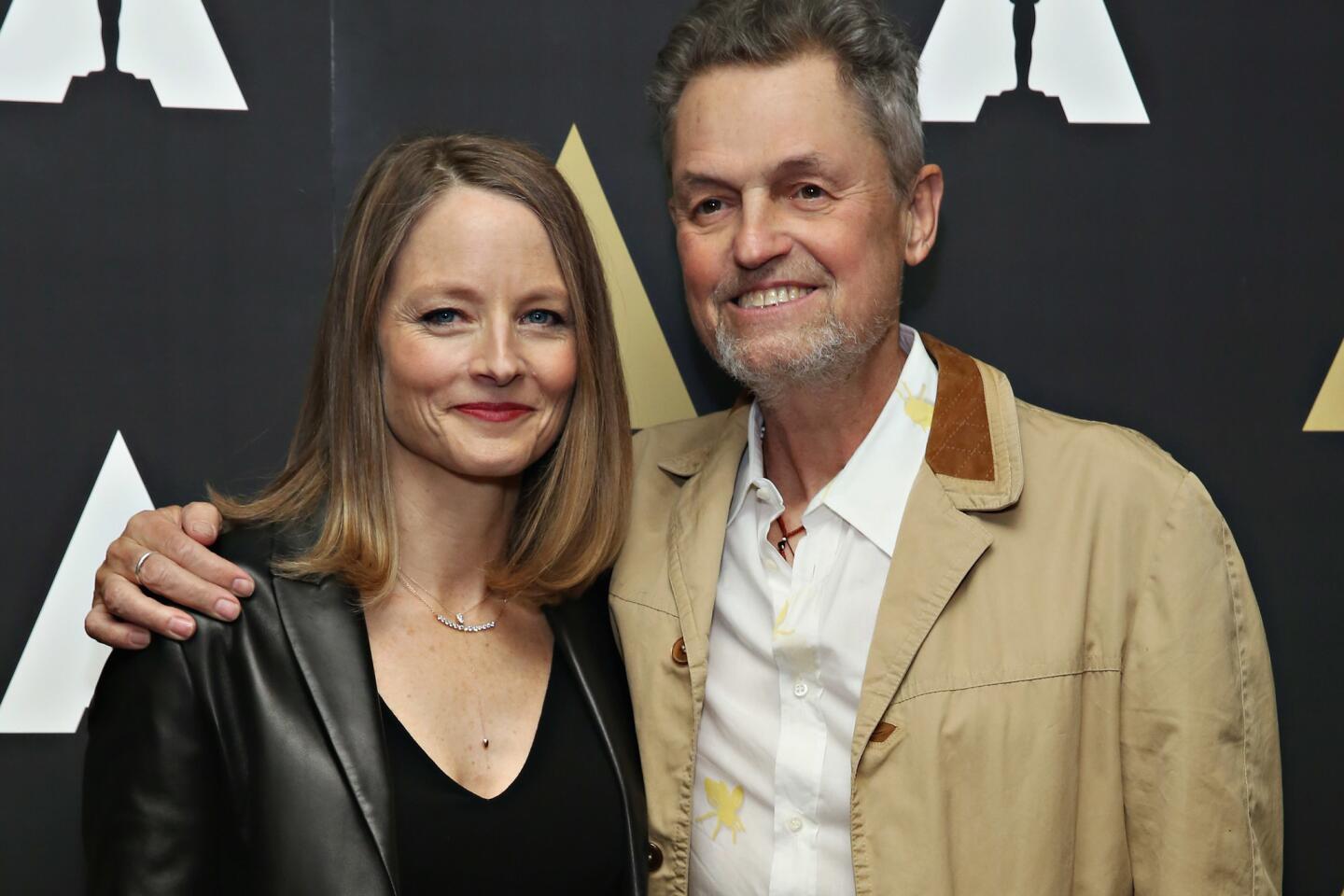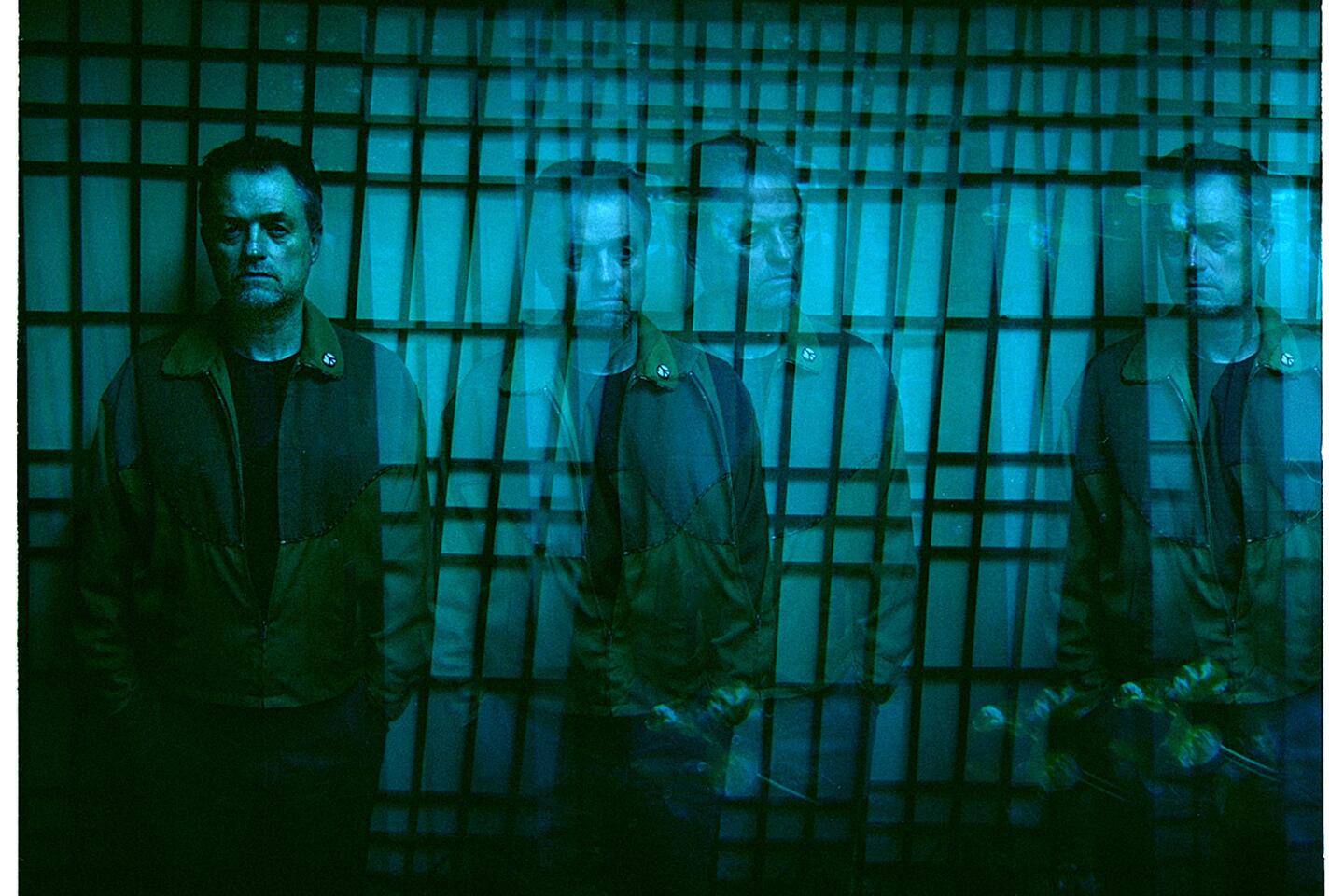From the Archives: Playwright and gay activist Larry Kramer explains why he hated Jonathan Demme’s ‘Philadelphia’
- Share via
“Philadelphia,” directed by Jonathan Demme, who died Wednesday, was the first major studio release to address the AIDS crisis and won Oscars for Tom Hanks and Bruce Springsteen in 1994. “Though it is going where books, plays, television movies and independent films have all gone before, having a sympathetic major star like Tom Hanks playing a man dying of AIDS could be as powerful societally as having a star like Rock Hudson announcing the same in real life,” The Times’ film critic Kenneth Turan said in his review. But playwright and activist Larry Kramer, author of “The Normal Heart,” was more scathing in his criticism. Here’s what he wrote for The Times in January 1994.
“Philadelphia” is a heartbreakingly mediocre film. It’s dishonest, it’s often legally, medically and politically inaccurate, and it breaks my heart that I must say it’s simply not good enough and I’d rather people not see it at all.
For 12 years, millions of people — gays, people with AIDS, people infected with HIV, their families and friends — have been waiting desperately for a “major” movie to deal with this plague in a mature fashion. Other tragedies, from the Holocaust to Vietnam to Watergate, have had their films. Why not AIDS? Oh, we knew why not: Because AIDS is happening to certain communities others would just as soon see dead. There’s no audience, we’ve been told, for this kind of subject; so for the 12 years of this plague, Hollywood has turned its back on it.
Finally a company called TriStar, which is a division of Columbia Pictures, which is a division of Sony Entertainment, which is a division of Japan, where there are very few AIDS cases, has given us “Philadelphia.” Not only has it given us “Philadelphia,” but it, and everyone else in Hollywood, has let us all know that if “Philadelphia” isn’t a success, there just might not be any other films about AIDS. In other words, like Clinton’s new gays-in-the-military policy, to fight for our welfare we go to this movie but we’re not supposed to tell anyone how awful it is. We’re supposed to be grateful it’s been made.
‘Philadelphia’ doesn’t have anything to do with the AIDS I know, or with the gay world I know.
But “Philadelphia” doesn’t have anything to do with the AIDS I know, or with the gay world I know. It doesn’t bear any truthful resemblance to the life, world and universe I live in. To believe any viewer — particularly those I would like to have experience something meaningful watching this movie — would change his or her point of view after seeing it is like thinking Jesse Helms or George Bush would change after watching an episode of “Another World.”
“Philadelphia” is put together like a by-the-numbers painting:
Take one noble gay white male hero (Tom Hanks). Put him together with one black ambulance-chasing lawyer who hates gays (Denzel Washington). Pepper their conflict with the (most improbable) notion that the shyster is the only lawyer in the entire city of Philadelphia who will defend the white man, who’s been fired from his law firm on obviously trumped-up grounds of poor work performance. (The audience knows it’s really because he has AIDS.) Make the head honchos in the white law firm (senior partner: Jason Robards) so monstrous and homophobic you wonder how they’ve stayed in business so long. Have a despicable white woman (Mary Steenburgen) and another black lawyer defend the law firm. By trial’s end, make certain the black shyster has experienced a change of heart so he can deliver a rending closing speech on discrimination and the white woman can mutter, “I hate this case.” And our hero, who’s just collapsed on the floor, can win some $30 million on his deathbed.
It’s so patently illegal to fire a person with AIDS that the very notion that a Main Line law firm would fire this guy is ludicrously unbelievable. Who was the legal adviser on this movie? Did no one know of the Americans With Disabilities Act, which categorically prohibits such a dismissal?
There’s another credibility problem: Washington never really makes us believe he’s as slimy as the script is telling us he is. His character does so many flip-flops I wondered whether they’d shot two versions and intercut them. One scene he’s railing against gays; the next scene, he’s defending them; then he’s slugging a gay athlete who tries to pick him up; then he’s waffling with his wife about the case.
The screenwriter may have meant Robards, Steenburgen and Washington all to be scumbags, but at least their parts are written. They’re more animated than anybody gay in the movie. Hanks, his lover and his mother are in a silent film. All their dialogue put together couldn’t cover 10 pages.
Hanks’ character is an utter cipher. I couldn’t tell you anything about him — opinions, beliefs or even whether he’s gay. Tom Hanks does not act in this movie. His makeup does his acting. I haven’t seen so many changes hinged on shades of Max Factor since James Cagney in “Man of a Thousand Faces.”
We see that Hanks wears a wedding ring, but who is his mate? He might as well be married to a woman. Some actor I couldn’t recognize from one scene to the next but who had dark hair and spoke with a Spanish accent hovers around Tom now and then, and Tom winks at him in the courtroom, but for all the script tells you, they could be trying to pick each other up or the guy could be a volunteer from an AIDS organization. No — I take that back. The dark-haired guy couldn’t work for an AIDS organization: He doesn’t know anything about AIDS. He talks about a colonoscopy as if it were brain surgery. Who was the medical adviser on this movie?
Two “big” scenes are meant to convey we’re in the company of “different” people. The first involves Tom listening to Maria Callas sing an obscure aria about the French Revolution from “Andrea Chenier.” To see this character, who’s been totally undeveloped by the screenwriter, suddenly — in front of Denzel — put on Maria and, in swooping close-ups a la Fellini, swirl and swoon around a dim room (his apartment? loft? house? as I say, it’s dim), his eyes rolling in ecstasy — this is not acting, it’s embarrassing. I’d be afraid of someone too if--out of the blue--he behaved like this.
The other scene is a gay party, which I guess is an obligatory scene in a movie about gay people. Quentin Crisp can be briefly glimpsed; what Quentin Crisp, perhaps one of the most outrageous homosexuals in the world, is doing at this party and with these people is a question I’ll bet even he can’t answer. There is a shot of one of our greatest AIDS activist heroes, Michael Callen (who died the day I saw this movie), performing, with the Flirtations, “Mr. Sandman” (they must have known that boring trial scene lay just ahead). Tom and his companion are dressed like naval officers. Tom dances with his lover as if he were his mother.
Which brings me to his mother, and the rest of his family. Every single one of them is supportive, thrilled he’s gay, and rooting for Tom at the trial. The movie’s single most awful moment comes when Tom gushes to these assembled relations — after warning them that bad things might come out about his private life (he once went, horror of horrors, to the baths and a gay porno theater) and learning that, surprise, they are with him 100% — “Gosh, I love you guys.” As Dorothy Parker once wrote, “Tontstant Weader fwowed up.”
Who’s going to see a movie like this? Why don’t the filmmakers understand that it’s lies and distortions that make the “Middle America” they pander to and are so terrified of offending stay away in droves? A 6-year-old — after five years of going to the mall and watching countless TV shows that handle this subject better — knows gay people don’t live and look and act like this.
I’m tired of hearing the old chestnut that the reason Hollywood doesn’t finance movies about gays and AIDS is that they won’t make money. (“Philadelphia” will not make money.) I scream back: If you make an honest movie, people will come to it, and there’s never been an honest movie financed by a major studio with gay or lesbian leading characters in which we’re dealt with dramatically just as heterosexuals are!
I fervently believe that the first decent movie in which a male star like Tom Hanks makes love, in a bed, naked, with another male star, like Tom Cruise, in the same bed, also naked, and they embrace and they talk to each other in an adult fashion, doing the same things straight lovers do in every single movie, TV show and commercial, it will make a fortune.
Which brings me to this movie’s biggest lie. There is not one person in the entire world with AIDS or who is HIV-positive who does not believe he or she is the victim of governmental inaction and oversight of huge proportions. There is not one of us not forced to face the fact that Ronald Reagan, George Bush and Bill Clinton have done little to save our lives. For there not to be one reference in this entire movie to this is criminal.
What unreal world do the manufacturers of this movie live in? How can it be possible that a gay screenwriter wrote this cornucopia of lies? Yes, I’m angry. I waited 12 years for this? Anyone who wants to see what gay life is really like and how audiences are reacting to it should go and see the seven hours of theater known as “Angels in America,” which is selling out every performance on Broadway.
To watch director Jonathan Demme and screenwriter Ron Nyswaner on a recent “Nightline” — trying to maintain that, well, gee, it’s not really a movie about AIDS, and well, we wanted to make a movie Middle America would go and see — is enough to make anyone lose faith in the artist as the teller of truth. Why did they make it, then? I bring up the painful reminder that Demme also directed “The Silence of the Lambs,” which many gays consider one of the most virulently and insidiously homophobic films ever made. Is “Philadelphia” some sort of attempt on his part to offer an apology? After these two films, I wish he’d just go away and leave us alone. He’s about as good for our cause as Reagan, Bush or Clinton.
In the end, though, my rage isn’t against Demme and Nyswaner. They’re only small potatoes who’ve missed a boat that could have carried some valuable cargo. My fury is against the third silent President in a row who refuses to take a leadership position in ending this plague, thus allowing everyone else’s complicities in a monstrous cover-up that not only allows one lousy AIDS movie to be made in 12 years, but by the same token allows an entire world to look the other way.
ALSO:
One of Jonathan Demme’s last works, an episode of ‘Shots Fired,’ will air tonight on Fox
Demme remembered as ‘one of the real good guys’ and ‘wonderful soulful man’ by his peers
More to Read
Only good movies
Get the Indie Focus newsletter, Mark Olsen's weekly guide to the world of cinema.
You may occasionally receive promotional content from the Los Angeles Times.

